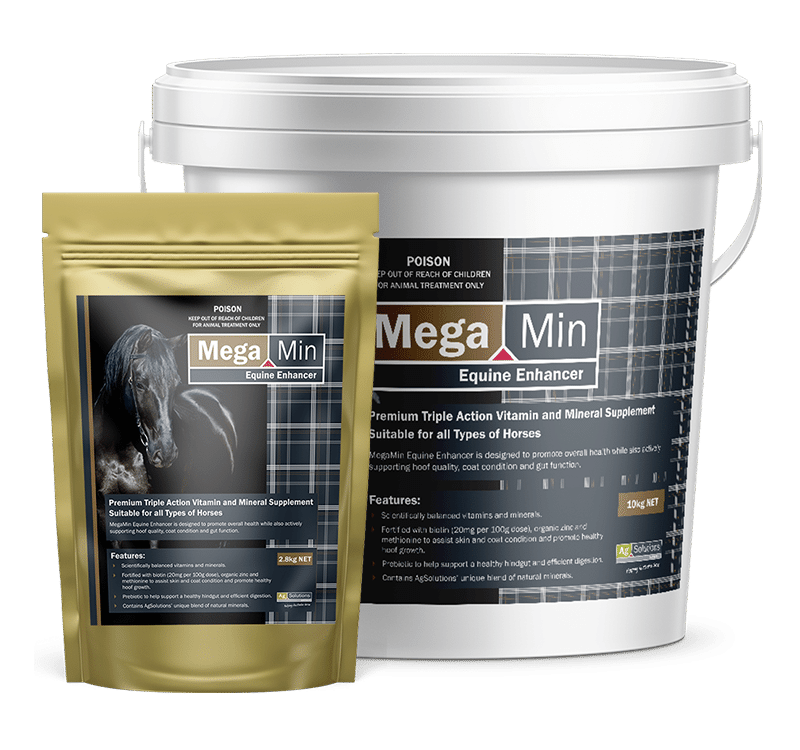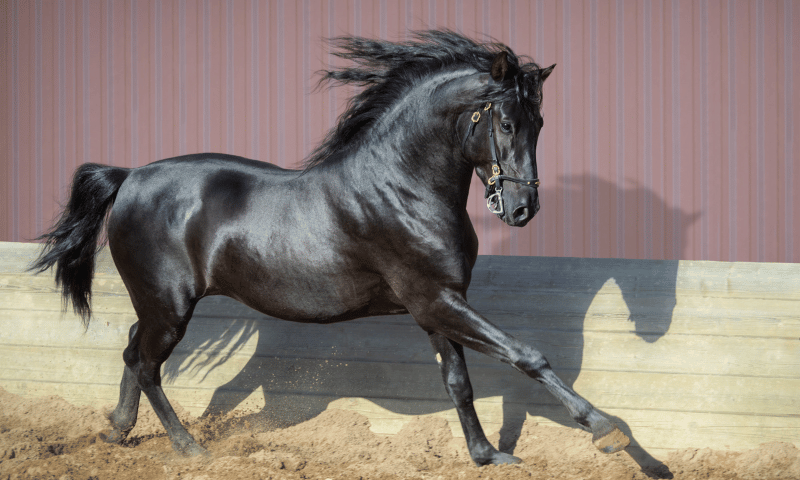Horses require a balanced diet to achieve optimal health, but knowing how to provide your horse with the perfect blend of energy, protein, fat, minerals, vitamins and fibre in their diet can be difficult to discern as numerous factors influence their individual dietary requirements (Kohnke 1999), including; activity level and exercise intensity; body size and weight; stage of training; reproductive demands; growth rate; disease or injury status; and individual ability to absorb adequate nutrition from rations to meet such requirements.
Forages such as pasture, hay and chaff, are instrumental sources of nutrients for horses but the nutritional quality of forages can be highly variable depending on plant species and level of maturity. Seasonal changes impact pasture quality and in turn the caloric, protein and mineral constructs of the plant; frosting reduces protein percentage, water limitations constrain pasture potential, and flowering often stimulates rapid decline in pasture quality, meaning your horse may not be absorbing adequate nutrients from forages to achieve optimal health.
To determine if a forage is meeting the energy needs of your horse, you simply need to gauge its weight; if it experiences weight loss, forage is unlikely meeting energy requirements; if it experiences weight gain, forage is likely exceeding requirements; and if it sustains a consistent weight, the forage supply of calories is likely adequate.
Horses grazing dry, frosted or drought affected pasture will generally require protein supplementation from a high-quality source, such as Lucerne hay, fortified feed, or extruded soybean meal, as inadequate protein consumption can lead to significant loss of muscle mass.
Most forages grown within Australia and throughout the world generally lack sufficient levels of essential trace minerals such as copper, zinc, selenium and iodine to fulfil the horse’s requirements for these nutrients (Richards 2017). In addition, different forages have a varying capacity to meet a horse’s nutrient requirements for calcium, phosphorus, sodium and chloride.
For example, Figure 1 exemplifies the nutritional value of a high- quality green pasture being grazed by a 500kg horse in light work; while this pasture would primarily satisfy the horse’s nutritional needs, it would not be receiving adequate levels of copper, zinc, selenium and iodine.
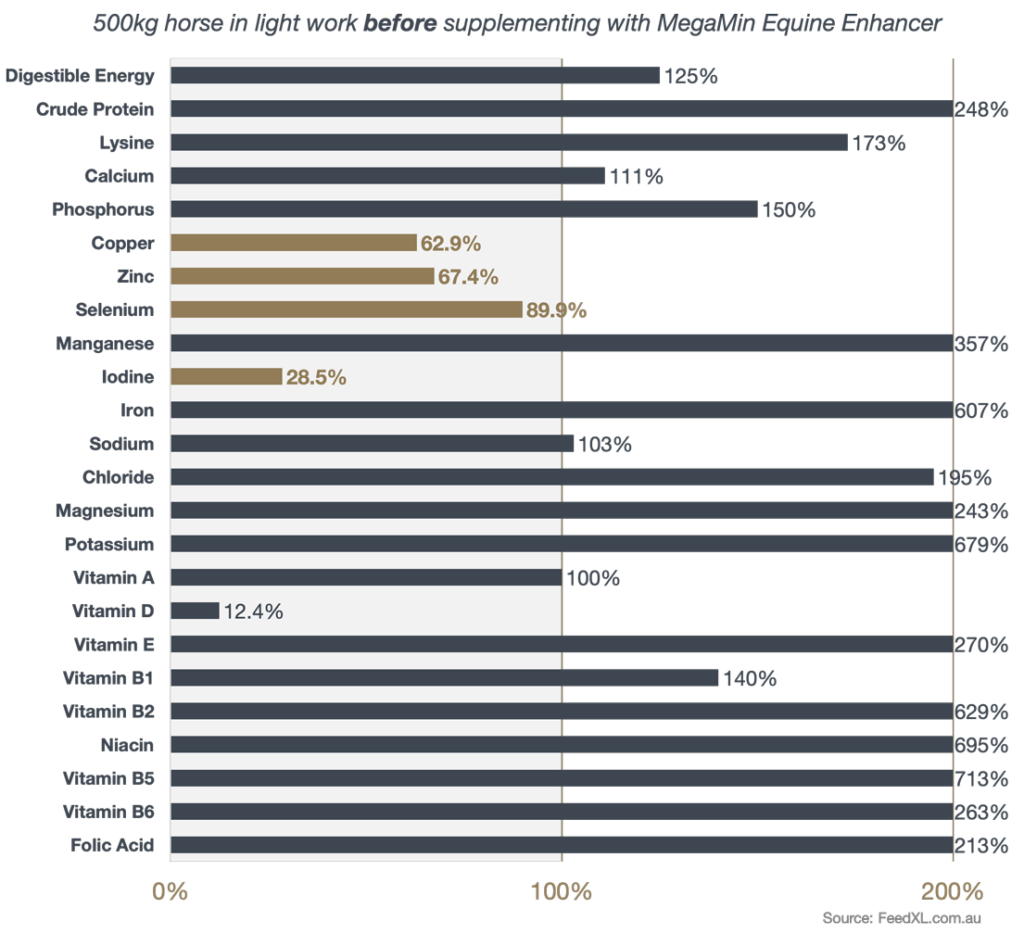
If adequate mineral supplementation is not provided to rectify these nutrient deficiencies, the horse will eventually become immunocompromised or experience other health issues such as; slowed hoof growth; reduced hoof quality; joint issues; rough hair coat; loss of coat colour and shine; fertility loss; reproductive issues and reduced performance.
To assist in overcoming such issues and under the guidance of a leading Australian Equine Nutritionist, AgSolutions developed a premium supplement range designed specifically for horses; MegaMin Equine Enhancer is a scientifically balanced vitamin and mineral supplement designed to promote overall health while also actively supporting hoof quality, coat condition and gut function.
Figure 2 demonstrates how a balanced diet for a 500kg horse in light work is achieved through MegaMin Equine Enhancer supplementation; with a balanced diet, the horse will receive adequate nutrients to help it to grow, reproduce or perform to the best of its genetic potential and training, while maintaining a healthy immune system.
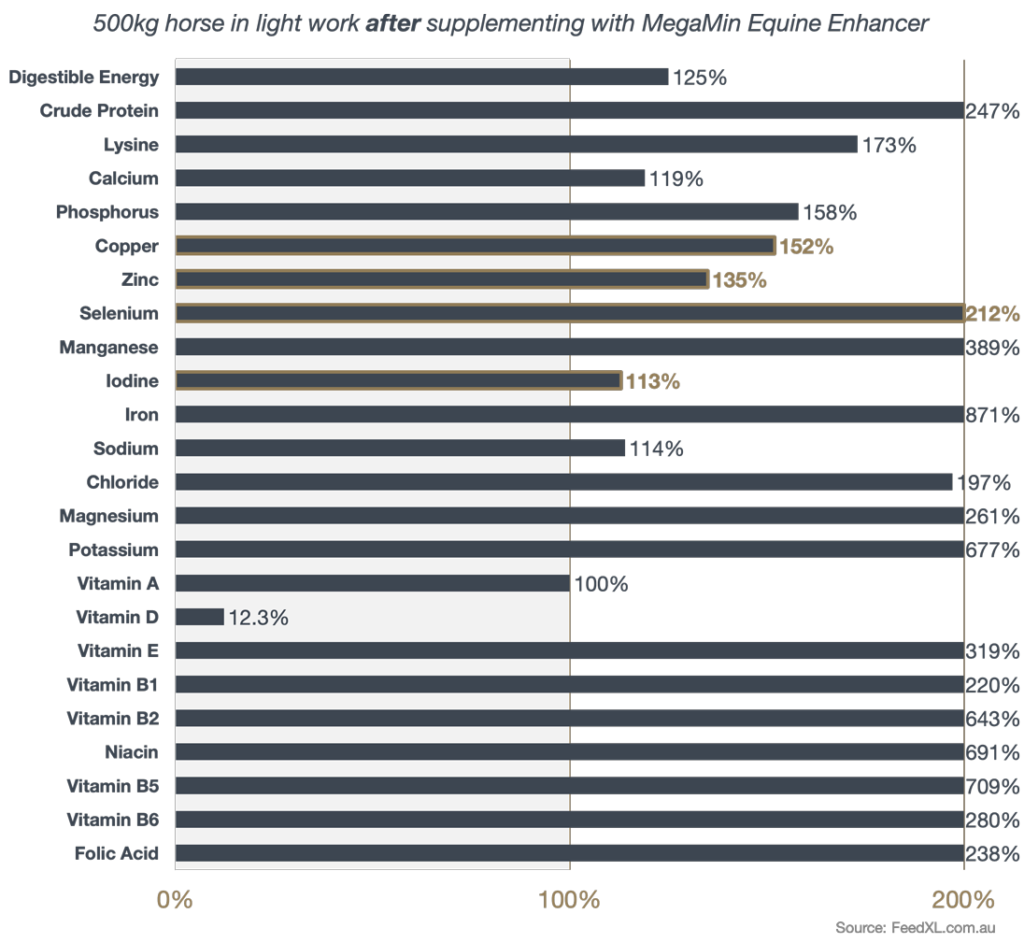
For horses receiving a fortified feed in addition to forage, it is essential feed ratios adequately compensate the energy output of your horse, meaning underfeeding, overfeeding or imbalanced feeds may impact overall horse health. For example, Figure 3 demonstrates how a 500kg horse undergoing intense work and receiving 2kg of a well-balanced fortified feed per day, while having 24hr access to a good quality pasture, is failing to have its nutritional needs met. This is because the recommended daily feeding rate for a 500kg horse in heavy work is 4kg on this particular feed and being under-met by 2kg, reducing adequate intake of iodine, selenium and copper.
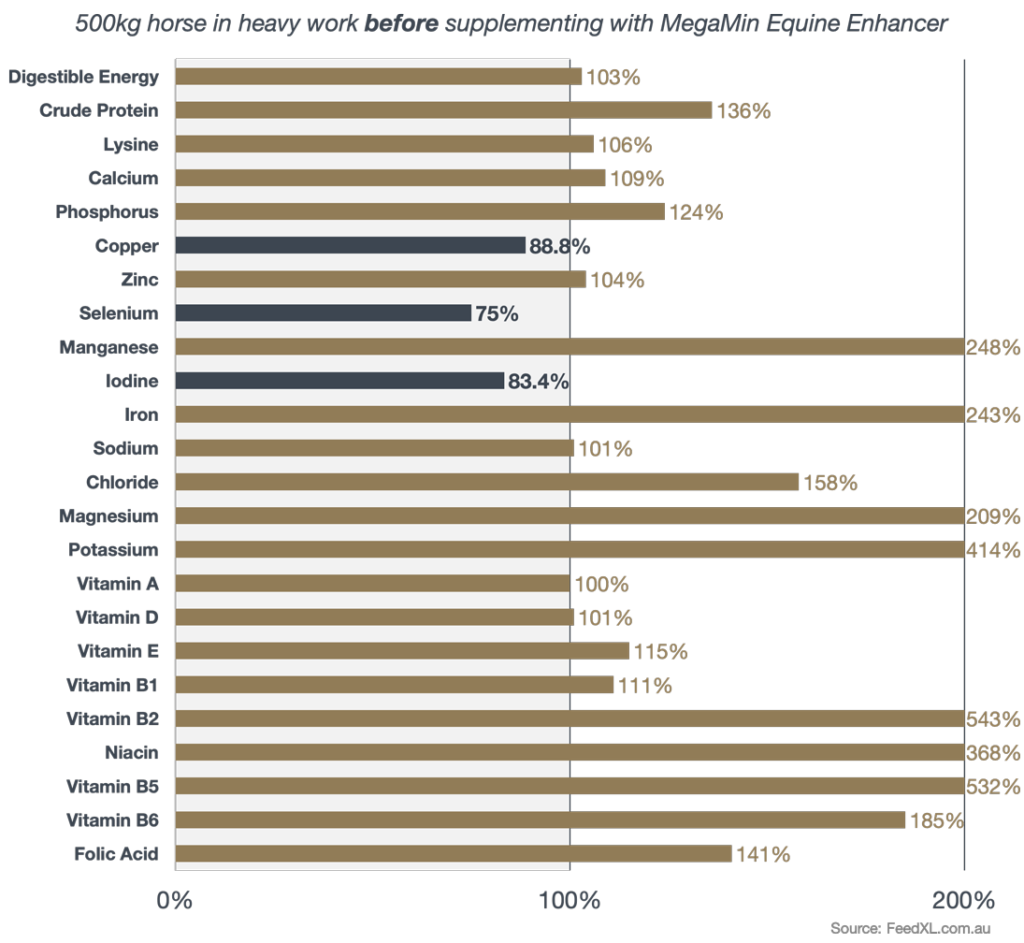
While increasing the fortified feed intake to 4kg would increase the nutritional value of the horse’s diet, in this case it would likely become more expensive and exceed the energy requirements of the horse, possibly leading to excess weight gain and behavioural issues. Alternatively, adding MegaMin Equine Enhancer to the horse’s feed identified as a more cost-effective and efficient means of ensuring the horse’s dietary requirements were being sufficiently met, as demonstrated by the graph in Figure 4.
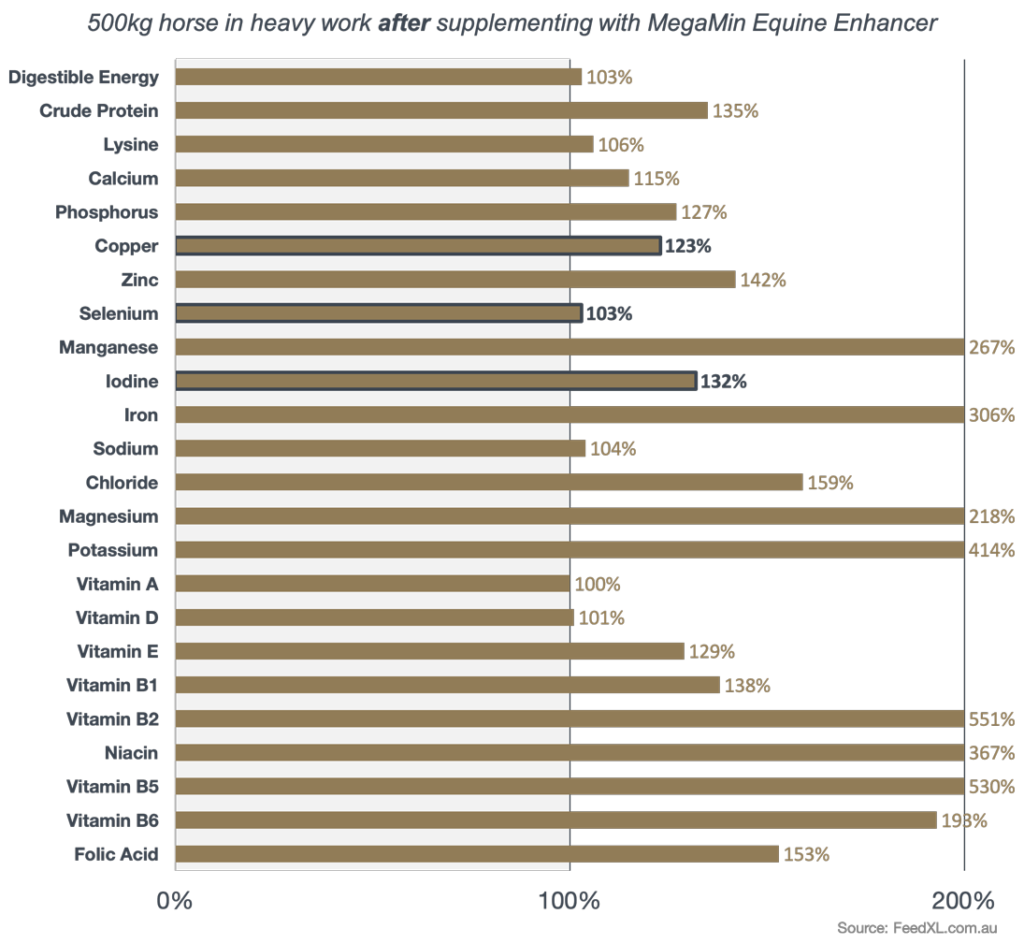
To find out how AgSolutions can help you assess the dietary requirements and health of your horse, or to find out more about our MegaMin Equine Supplement range, please give us a call on 1800 81 57 57, enquire at your preferred store, or click the link below…
